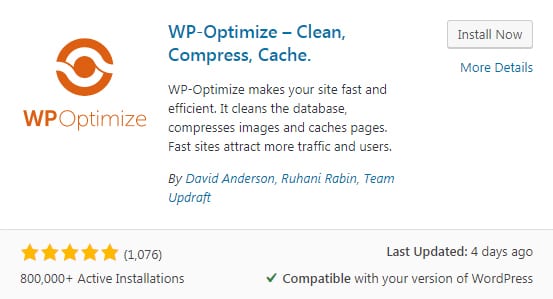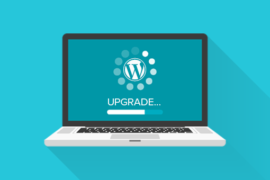Why is it important to clean up your WordPress database? All WordPress sites are made up of two parts – files that contain media, themes and plugins and a database that contains settings, posts, post meta, users and their credentials and so on.
The size of a WordPress database file can vary depending on the site, from as little as 1MB to several or tens of gigabytes.
It is important to optimize your database for a number of reasons. A bloated database can slow down your site and backend or even crash. Data loss can sometimes occur.
If the database is large, this does not necessarily mean that it is not optimized and vice versa. If you sell WooCommerce products, your database will undoubtedly grow over time. However, excess data will accumulate over time, so it is important to periodically clean out your WordPress database.
What are the reasons the database is bloated?
Unused WordPress Plugins
Whenever you install a WordPress plugin (like a WordPress SEO plugin like Yoast SEO), new tables are added to the database. Even after removing unused plugins, tables often remain. This is not a bad thing, especially if you want to try a different plugin and come back to the old one later. However, in most cases, this is simply redundant data that needs to be deleted.
There are some plugins that use default WordPress tables. This makes deleting unnecessary data even more difficult, since you cannot simply delete tables. Fortunately, there are ways to optimize these tables as well.
Unwanted Comments
You get most of the comments every day and are very happy with it. Your users / fans love you. But not all is well and not all comments are helpful. This is either a spam comment or just something that you disapprove of. These comments then end up in dusty “folders” in your database. Why are you letting them grow their databases? Clean up your DB and be done with it.
Changes
Did you know that every time you make any changes to your posts, WordPress saves both the old and the current version? This is actually quite useful when you’re not sure what you are going to use in the end, but what if you do?
To reduce the size of the database, there are two ways to do it: version control and database cleanup. In fact, you have to do both. Version control simply limits the number of posts WordPress will keep, so cleaning up the database is a smarter way to go.
You will also save a lot of space by optimizing the database after removing revisions.
Older posts
Your site’s 10th anniversary is approaching. This is your 3000th post and everyone is thrilled. While you are celebrating, hidden posts and pages you have forgotten about are still somewhere in the database. Yes, nostalgia is a warm feeling, but know that these recordings take up space. If you really want to save them, do so on your local drive.
Unused media files
Images, songs, and any other media you don’t use are absolutely unnecessary. This Media Cleaner plugin will help you remove unused data in no time.
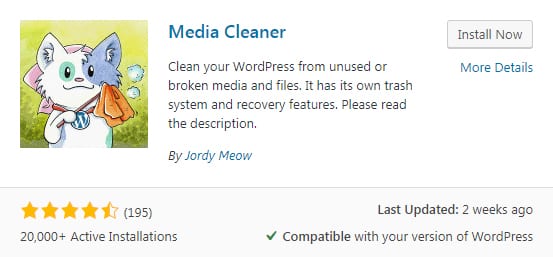
Plus, image optimization can significantly improve the performance of your WordPress sites.
You should also update all your plugins and themes regularly. This can prevent some bugs and help with optimization.
Caching Plugins
You can prevent database bloat with a WordPress caching plugin like WP Super Cache. With caching plugins, you can configure WordPress to simply save certain data or restrict its storage. Yes, caching is used to reduce load times, but this is not always the case. Web hosts have restrictions on their servers that you must not cross. Alternatively, you can simply use a faster WordPress theme if you need speed.
If you are using a more expensive WordPress hosting, chances are that the WordPress cache will already be configured and optimized.
Always make a backup!
Cleaning up your database shouldn’t mess up your files, but it’s always better to be safe than sorry.
Cleaning up the WordPress database
There are several ways to clean up your WordPress database. Using a SQL query is the most direct approach, but I only recommend this method for advanced users. You can also hire a team of professionals to do this for you.
In this beginner’s guide, I’ll show you the easiest and fastest way. So let’s try some plugins.
Advanced Database Cleaner
This database plugin has 50,000 active installations and fairly frequent updates. What I love about it is that it can clean up the WordPress database as well as optimize it. In addition, there are plugins for deleting certain data, which may be useful for advanced users.
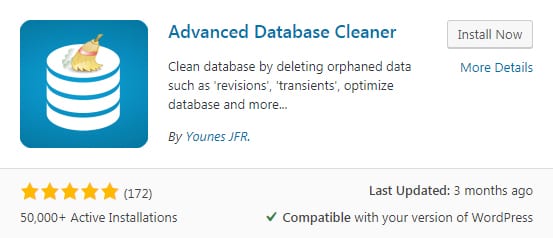
This plugin can help you clean up your WordPress database, including:
- Lost data
- Unused tags
- Auto drafts
- Spam
- Deleted Comments
- Changes
- Older posts
- unnecessary comments, etc.
It’s pretty simple. After installation and activation, its interface will appear. On the general cleaning tab, check the data you want to clear. On the right side, you will see the amount of unnecessary data from each category.
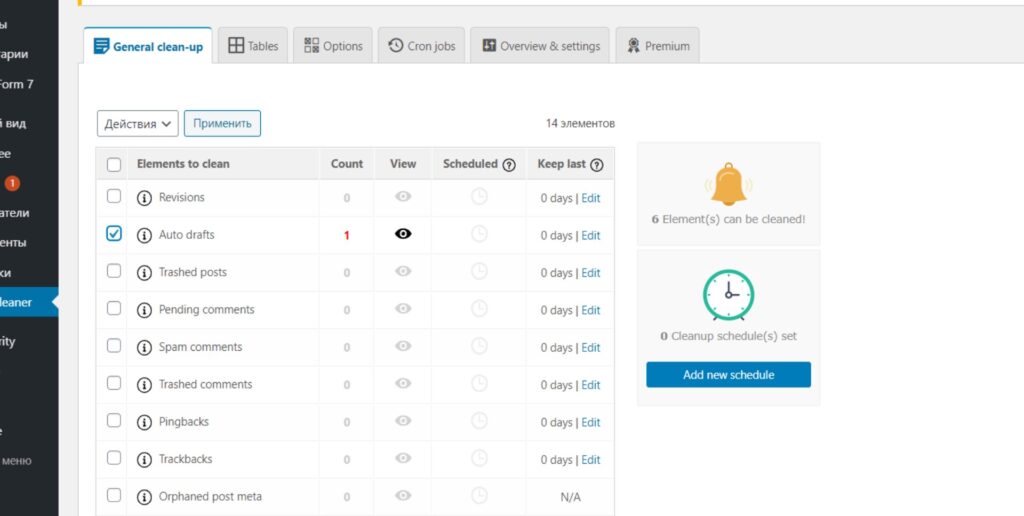
Your database is completely cleaned up! Now we need to delete the extra tables. Do this very carefully, or rather buy the pro version, so as not to delete unnecessary things.
In the free version, you can safely optimize tables. Go to the Tables tab, on the right you will see the number of tables for optimization. Click on the number and select all tables. Choose an action – optimize.
Now you will see the inscription on the right – Your database is optimized!
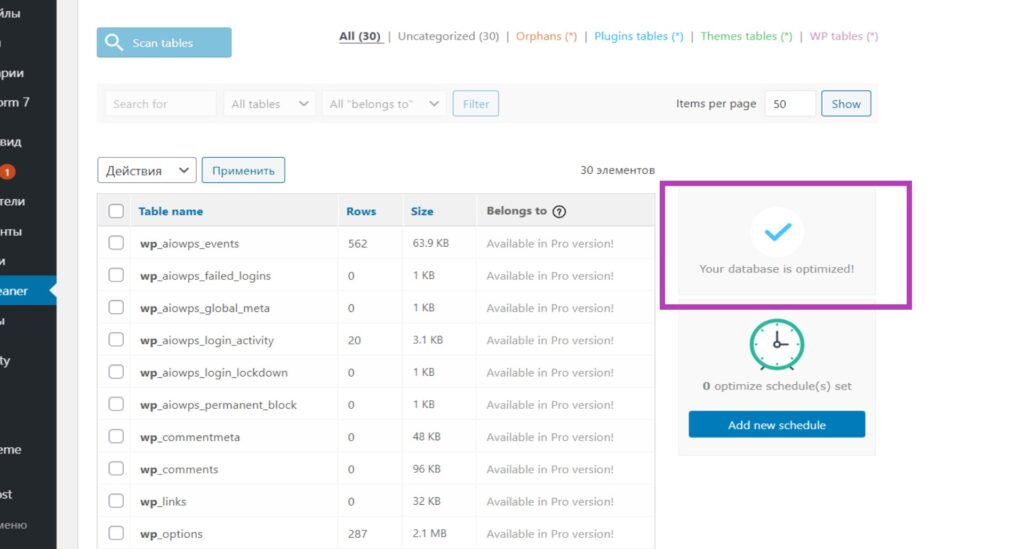
Great, your site is in pretty good shape now! You can also schedule the next cleanup or optimization, which is a great option!
WP Optimize
What’s great about the wp optimize plugin is that, as part of Team Updraft, it also includes backups. Plus, it comes with constant updates.
What’s great about the wp optimize plugin is that, as part of Team Updraft, it also includes backups. Plus, it comes with constant updates.
Like the aforementioned plugin, this one is also easy to use. You can optimize or clean up your database one step at a time.
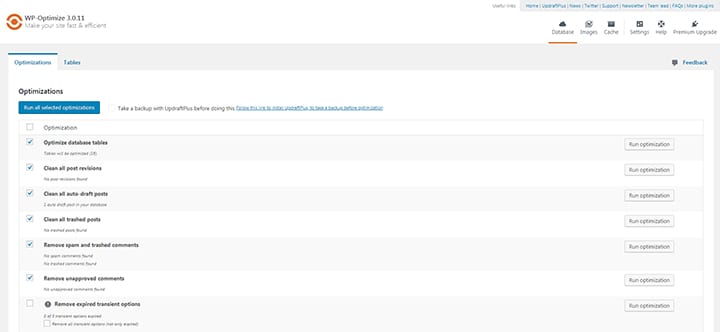
Another amazing thing is that it also provides image optimization / compression options.
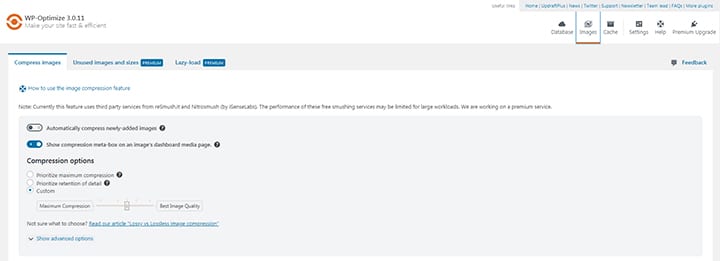
It’s free to some degree, but the premium version opens up a lot more options.

